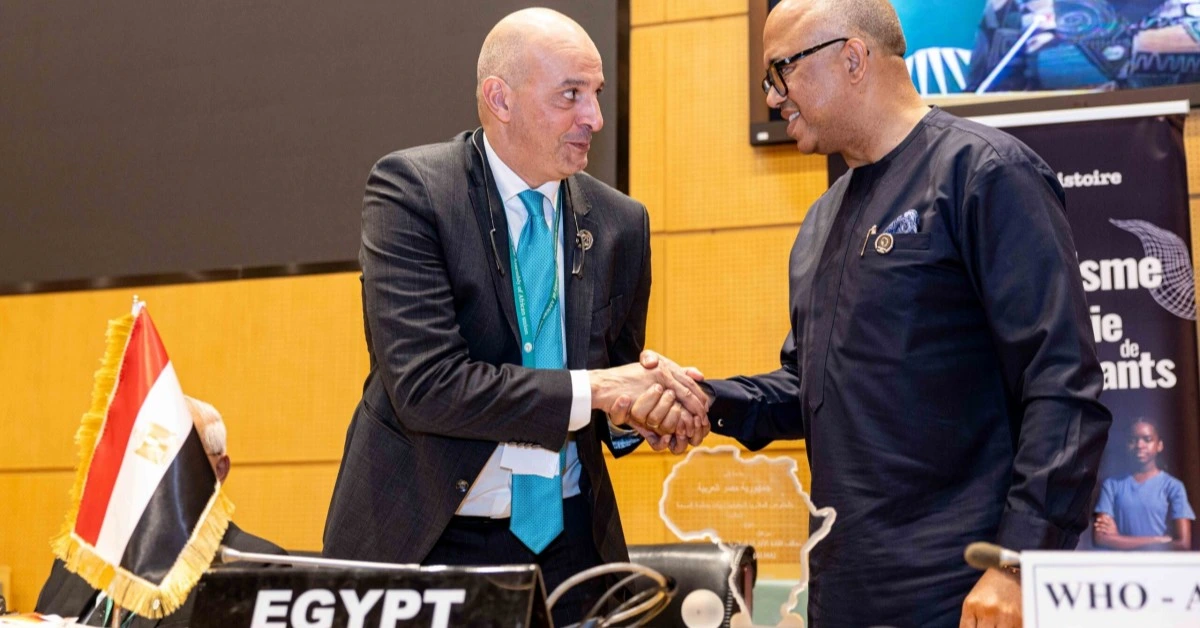
AFRICA – African leaders have reaffirmed their dedication to eradicating malaria, appointing President Advocate Duma Gideon Boko of Botswana as the new Chair of the African Leaders Malaria Alliance (ALMA).
He takes over from President Umaro Sissoco Embaló of Guinea-Bissau, who led the alliance for over two years.
Leaders also called for increased efforts to combat malaria, including mobilizing resources and ensuring a successful replenishment of the Global Fund to Fight AIDS, Tuberculosis, and Malaria.
A Critical moment in the fight against malaria
The 2024 Africa Malaria Progress Report, released during the African Union Summit, highlighted worrying trends. Despite efforts, malaria elimination progress has stalled, and new threats are emerging.
Factors such as inadequate funding, rapid population growth, climate change, and biological resistance to insecticides and drugs are jeopardizing Africa’s goal of eliminating malaria by 2030.
Humanitarian crises have further complicated the fight against the disease. To counter these challenges, leaders emphasized the need for innovative financing, domestic resource mobilization, and rapid deployment of new malaria interventions.
New leadership at ALMA
During the summit, President Embaló officially handed over ALMA’s leadership to President Boko, who pledged to continue pushing for malaria elimination.
He stressed the need for increased financial investment to prevent a resurgence of malaria cases and keep elimination efforts on track.
“Africa must urgently rise to the challenge by mobilizing domestic resources, including drawing down on emergency funds and increasing health budget allocations.
We must also scale up innovative financing, such as End Malaria Councils and Funds, and leverage platforms like the World Bank IDA and the Green Climate Fund to ensure our national programs have the necessary resources,” said President Boko.
Former Liberian President Ellen Johnson Sirleaf, who previously chaired ALMA, noted that nine End Malaria Councils have raised over US $125 million to support malaria programs.
She also emphasized the vital role of community health workers in tackling diseases like malaria, pneumonia, and diarrhea, calling for increased investment in primary healthcare.
The role of the Global Fund in malaria elimination
Leaders at the summit underscored the importance of securing funds for malaria programs. The Global Fund provides 62% of international financing for malaria and is crucial for maintaining progress.
Ambassador Minata Samate Cessouma, Commissioner for Health, Humanitarian Affairs, and Social Development at the African Union Commission, stressed the need for continued investment.
“Malaria is a pathfinder for health system strengthening, primary healthcare, and pandemic preparedness. It highlights the urgent need to address the health impacts of climate change. This is why we must secure adequate resources for malaria, HIV, and TB, especially through the upcoming Global Fund replenishment,” she stated.
The report also called for the rapid scaling up of new malaria tools, including dual insecticide-treated nets, innovative insecticides, new medicines, and malaria vaccines.
Leaders stressed that local manufacturing of these tools in Africa would not only improve health outcomes but also contribute to economic growth.
‘Change the Story’ Campaign to Inspire Action
The summit also featured the launch of a new phase of the international ‘Change the Story’ campaign, which amplifies the voices of children affected by malaria. The campaign encourages political leaders to increase investment in malaria elimination efforts.
Nigerian author and Zero Malaria Ambassador Chimamanda Ngozi Adichie supported the campaign, emphasizing the need to listen to children’s experiences.
“We need to listen to children’s voices today because the decisions our leaders make will shape their futures. Nigeria, where I was born, carries the highest malaria burden, and I have seen firsthand how this disease disrupts education, steals livelihoods, and takes lives. We must change the story of malaria and turn the page to a more hopeful chapter,” she urged.
A documentary premiering at the summit shared the story of Gloria, a young girl from Mozambique, who recalled how flooding destroyed her home and left her family vulnerable to malaria.
“The rain came down so hard, it was like elephants dancing on the roof. Our house was gone, and the greedy water took everything – our beds, our mosquito nets, and my favorite toy,” she shared.
The film highlights how malaria worsens in the aftermath of natural disasters, making prevention measures even more critical.
Egypt achieves malaria-free status
Amid the challenges, there was a reason to celebrate as Egypt received malaria-free certification from the World Health Organization (WHO).
During the summit, President Boko and WHO Africa Regional Director Dr. Chikwe Ihekweazu presented an award to Ambassador Ashraf Sweilam of Egypt in recognition of this achievement. This milestone demonstrates that malaria elimination is possible with sustained commitment and effort.
A call for urgent action
According to the 2024 Africa Malaria Progress Report, Africa has reduced malaria incidence by 38% and mortality by 60% since 2000, preventing 1.8 billion cases and saving nearly 12 million lives. However, to maintain progress, leaders must act swiftly.
As former ALMA Chair President Embaló emphasized, “Now is the time for a big push. We must act with urgency and accelerate malaria elimination efforts across the continent.”
XRP HEALTHCARE L.L.C | License Number: 2312867.01 | Dubai | © Copyright 2025 | All Rights Reserved